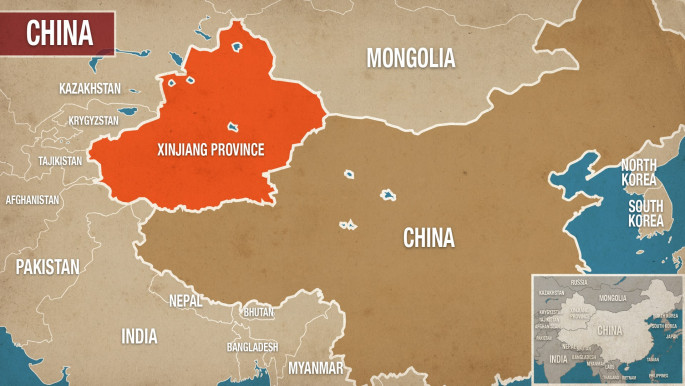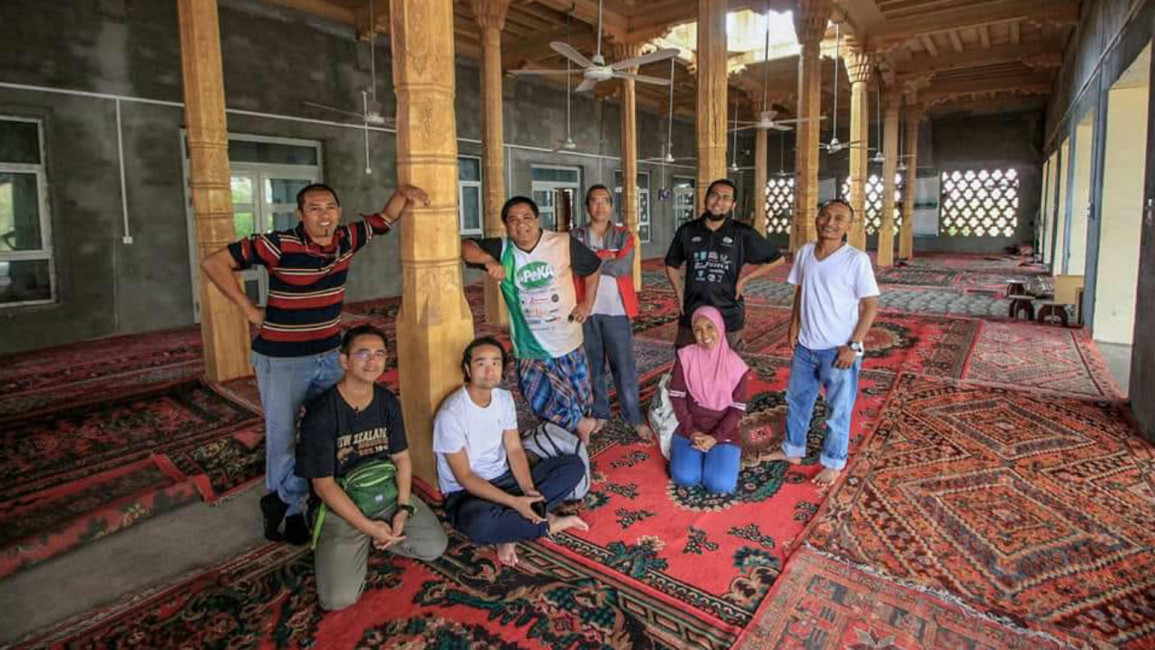China arrests Malaysian tourists for praying in Uighur mosque without a 'license'
A member of the group shared details of the frightening experience after their safe return to Malaysia from Xinjiang - where more than a million Uighur and other mostly Muslim ethnic minorities are believed by the UN to be imprisoned in detention camps.
"While we were relieved to be released, we were also disappointed because we had our rights denied as Muslims to pray in a mosque," the group's leader said.
The incident began when the group stumbled upon an accessible mosque while on their trip. They were very pleased as it was "the only mosque we could enter and pray in peace", the group recounted in a Facebook post.
But once they had finished praying "armed forces and the police [were] waiting for us outside the mosque" and one of the mosque's custodians was "being scolded" by a Chinese officer.
 |
The group's leader Khir Ariffin quickly advised another member of the group, a senior editor at Malaysian national news agency BERNAMA, to contact his work colleagues.
"Tell them if we can't be contacted in the next 24 hours, inform the embassy without spreading word to the media. SOS," Ariffin said.
The group's leader soon realised that they had been followed throughout the entire time they had been in China, with officers allegedly disguising themselves as "public cleaners, local citizens, and shop owners".
"We were constantly being watched," Ariffin shared.
The group was taken from the mosque to an unknown location by armed forces and police.
The group was "stunned to see a shielded gate and compound in the middle of such a rural old village. A full team of military officials and police officers were waiting for our arrival".
Read more: Mesut Ozil's Uighur post: 10 things you need to know about China's Xinjiang crisis
They were then held in a locked room "that resembled a prison" while the groups tour guide spoke with the Chinese officials. After a few hours, the group was released.
'Staying quiet'
"I believe the only reason we were released was because we had members of the media travelling with us and the officials didn't want coverage of what was happening in Xinjiang to be known to the rest of the world, especially given the popularity of the Uighur crisis right now," Ariffin said.
The group's leader urged others to speak out on the issue of the Uighurs. "Staying quiet won't solve this problem. God allowed us to experience a glimpse of Uighur so that we can share," he added.
China's all-encompassing security crackdown in Xinjiang has turned the northwest region - home to most of the country's ethnic Uighur population - into a place activists describe as an open air prison.
For those living outside the camps, ubiquitous ID checks and tight security are a part of daily life.
Read more: China's Uighurs: A genocide in the making
The most controversial aspect of China's security crackdown in Xinjiang is its vast network of re-education camps, where rights groups and former inmates say detainees are subject to forced political indoctrination and even abuse.
China has also demolished dozens of mosques and Muslim shrines in Xinjiang over the past three years, a Guardian investigation revealed.
Muslims in Xinjiang are forced not to fast during the Muslim holy month of Ramadan , and have allegedly been forced to drink alcohol and eat pork - both forbidden in Islam - in internment camps.
Agencies contributed to this report.

![Widespread famine is imminent in Gaza [Getty Images]](/sites/default/files/styles/image_330x185/public/2024-03/GettyImages-2015647000.jpg?h=199d8c1f&itok=mJWWP_Td)

